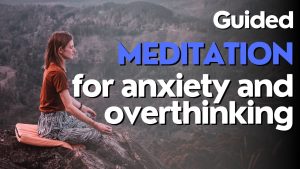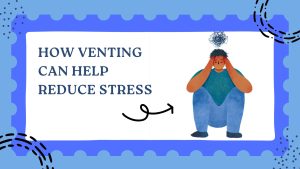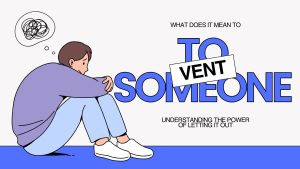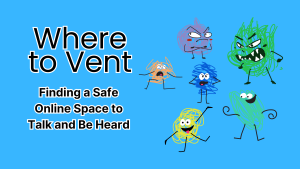
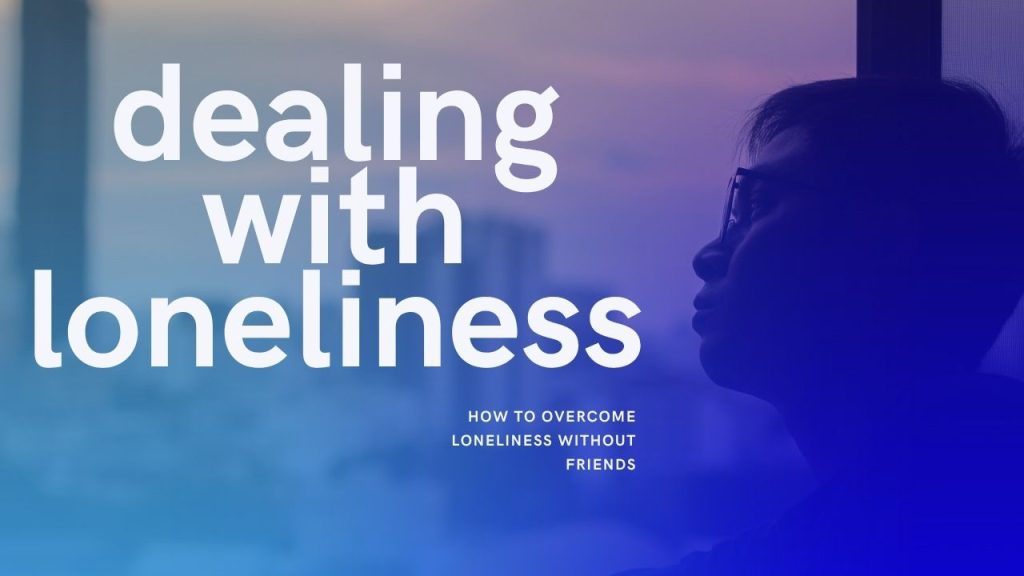
Loneliness can feel like being surrounded by people but still feeling unseen. It’s a quiet ache that can grow louder when the world seems to move on without you. Whether it’s caused by life transitions, social anxiety, or emotional exhaustion, loneliness doesn’t mean something is wrong with you—it simply means you’re human and in need of connection.
If you’ve been wondering how to overcome loneliness without friends or even how to cure loneliness, you’re not alone. There are compassionate, realistic ways to begin feeling more connected again, even when you don’t have someone to lean on right now.

Loneliness isn’t just being physically alone—it’s the feeling that no one truly understands or values you. Sometimes, it appears even when you have friends, family, or coworkers nearby.
Start by acknowledging your feelings without shame. Write them down, speak them aloud, or talk them through with someone who listens. When you name loneliness for what it is, you take away some of its power.
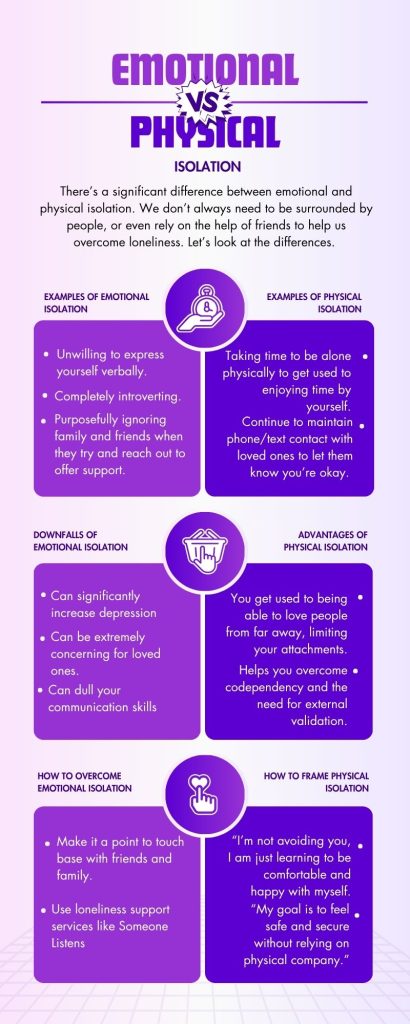
When you feel lonely, your mind often tells you that you’re not enough. The truth? Reconnecting with yourself can be one of the most healing steps.
Try:
Journaling each morning to release emotions.
Going for walks without your phone — notice your thoughts.
Practicing self-compassion: talk to yourself as if you were comforting a friend.
You don’t have to wait for someone else to validate your worth—you can begin nurturing it right now.

Even if you don’t have close friends at the moment, human connection can still happen in gentle, unexpected ways.
Try joining:
Online support groups or communities where you can share your story safely.
Local meetups or workshops based on shared interests, not social pressure.
Virtual emotional support spaces like Someone Listens—where you can speak to someone anonymously and without judgment.
Remember: connection isn’t always about the number of people you know. It’s about the quality of being heard.
Routine can be a lifeline during lonely seasons. When your day feels empty, small rituals can bring comfort and structure.
Ideas include:
Making tea or coffee at the same time daily and focusing on the process.
Listening to a guided meditation for anxiety or overthinking before bed.
Setting a goal to message one person per week — no pressure, just outreach.
Consistency reminds your brain that you’re safe, grounded, and capable of creating your own sense of belonging.

Loneliness thrives in silence. Sharing your feelings out loud is one of the fastest ways to break its hold.
That’s what Someone Listens was created for—to offer real emotional support when you don’t have anyone else to talk to. You can vent without fear, express emotions freely, and finally feel heard by a compassionate listener.
You don’t have to keep it all inside. Someone is ready to listen.
If you’ve been searching for how to cure loneliness, remember: loneliness isn’t something you cure—it’s something you walk through. With time, connection, and compassion, it begins to loosen its grip.
Every time you open up, reach out, or take one small step toward healing—you’re already winning against loneliness.
When you need someone to listen, reach out through Someone Listens.
You deserve to be heard. 💙
You Can Talk With Me...I'm Here to Listen...
Brandon, the Voice Behind Someone Listens Tweet

Brandon holds a major in Psychology and has a background that's affforded him the opportunity to meet people from all walks of life. With a never-ending curiosity for the human-mind and empathy for those in need, he's turned Someone Listens into one of the top alternatives to traditional counseling.


